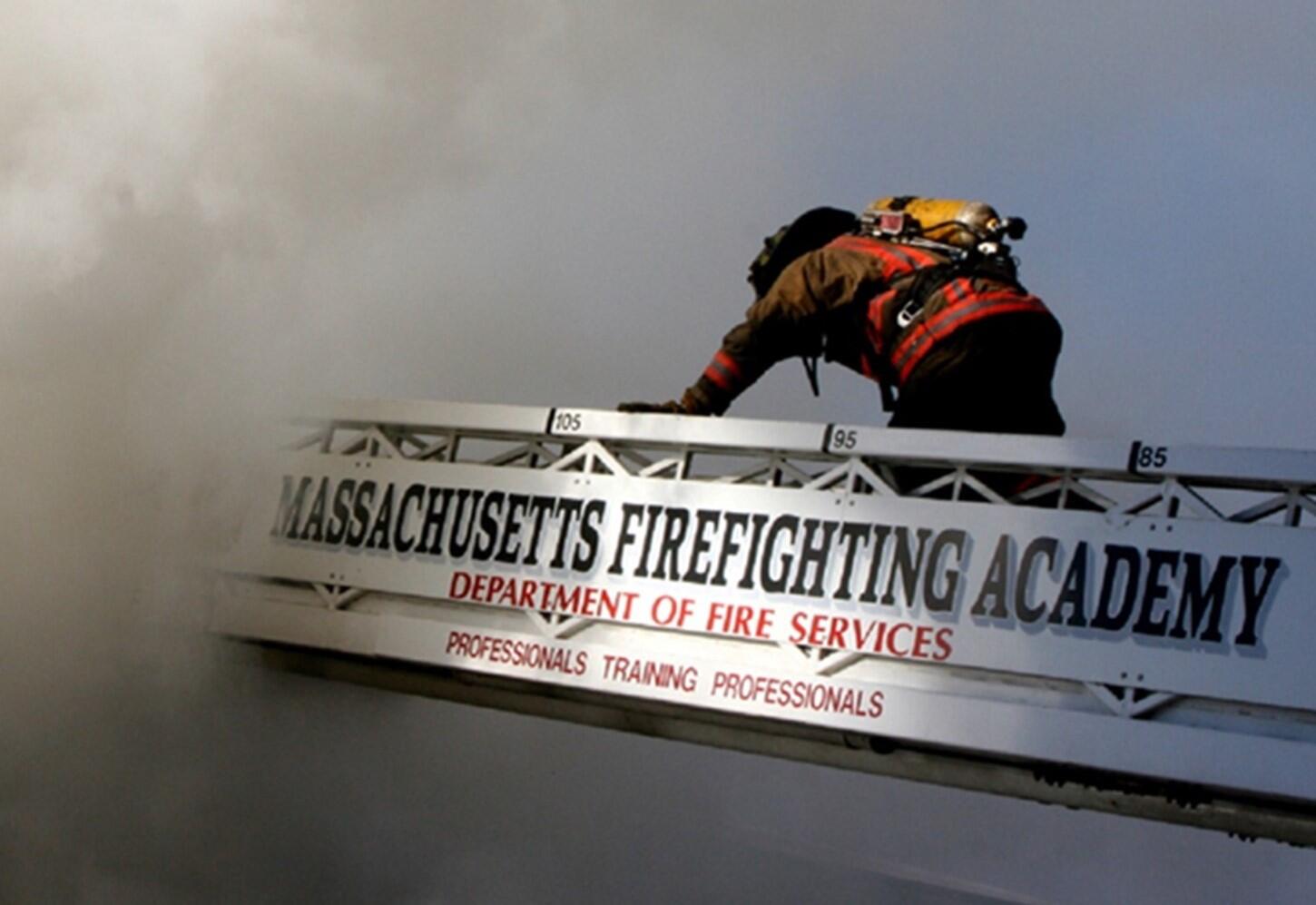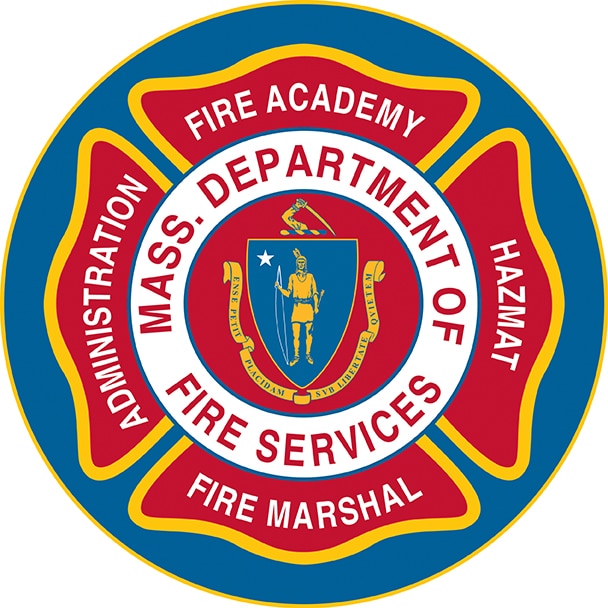- Department of Fire Services
Media Contact
Jake Wark, Public Information Officer

SOUTH HAMILTON and STOW — State Fire Marshal Peter J. Ostroskey and Deputy State Fire Marshal Maribel Fournier, acting director of the Massachusetts Firefighting Academy (MFA), announced the graduation of 45 recruits from the MFA Call/Volunteer Recruit Firefighter Training Program this week. The graduates received certificates of completion at ceremonies held on the evenings of Feb. 28 and March 1.
Call/Volunteer Recruit Firefighter Training Class #95: 21 Graduates from 13 Departments
Class #95 graduated at Hamilton Wenham Regional High School in South Hamilton on Feb. 28. The 21 graduates represent the 13 fire departments of Boxford, Georgetown, Hamilton, Lincoln, Lynnfield, Middleton, Nahant, Newburyport, Rockport, Rowley, Topsfield, Wenham, and West Newbury.
Call/Volunteer Recruit Firefighter Training Class #96: 24 Graduates from 14 Departments
Class #96 graduated at the Department of Fire Services’ Stow campus on March 1. The 24 graduates represent the 14 fire departments of Grafton, Holden, Hopedale, Hubbardston, New Braintree, Oxford, Paxton, Pepperell, Sherborn, Spencer, Sutton, Three Rivers, Townsend, and Uxbridge.
“First responders are on the front lines of any crisis and these newest firefighters are needed now more than ever,” said Deputy State Fire Marshal Fournier, who is the acting MFA director. “The rigorous training they’ve completed provides them with the fundamental skills and knowledge necessary to protect their communities safely and effectively.”
The Call/Volunteer Firefighter Recruit Training Program is unique in that it delivers a standard recruit training curriculum, meeting national standards, on nights and weekends to accommodate the schedule of firefighters in suburban and rural areas. Bringing the training closer to firefighters means more can participate and allows them more time to practice training skills with instructors.
The MFA, a division of the Department of Fire Services, has offered the program since 2003. To date, nearly 3,000 call and volunteer recruits have graduated.
Today’s Firefighters Do Far More than Fight Fires
Today’s firefighters do far more than fight fires. They train to respond to all types of hazards and emergencies. They are the first ones called to respond to chemical and environmental emergencies, ranging from the suspected presence of carbon monoxide to Fentanyl overdoses or a gas leak. They may be called to rescue a child who has fallen through the ice or who has locked himself in a bathroom. They rescue people from stalled elevators and those who are trapped in vehicle crashes. They test and maintain their equipment including self-contained breathing apparatus (SCBA), hydrants, hoses, power tools, and apparatus.
At the Massachusetts Firefighting Academy, they learn all these skills and more, including the latest science of fire behavior and suppression tactics, from certified fire instructors. They also receive training in public fire education, hazardous material incident mitigation, flammable liquids, stress management, and self-rescue techniques. The intensive program involves classroom instruction, physical fitness training, firefighter skills training, and live firefighting practice.
Basic Firefighter Skills
Students receive classroom training in all basic firefighter skills. They practice first under non-fire conditions and then during controlled fire conditions. To graduate, students must demonstrate proficiency in life safety, search and rescue, ladder operations, water supply, pump operation, and fire attack. Fire attack operations range from mailbox fires to multiple-floor or multiple room structural fires.
Graduates have completed 240 hours of training on nights and weekends. Upon successful completion of this program, all students have met the standards of National Fire Protection Association 1001. In addition, they have the ability to become certified to the level of Firefighter I and II and Hazardous Materials First Responder Operations Level by the Massachusetts Fire Training Council, which is accredited by the National Board on Fire Service Professional Qualifications.
###
